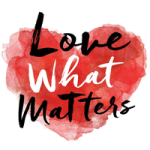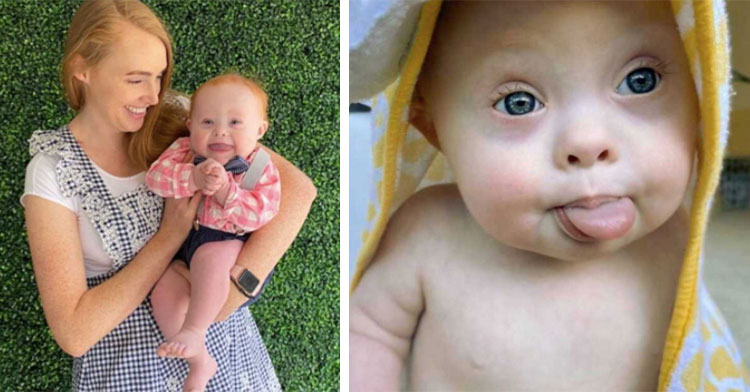Get more stories like this in your inbox! Sign up for Smile, our free daily good news email read by over 825K people!
Videos by InspireMore
“When our third child was born on November 20, 2018, his umbilical cord was wrapped around his neck and he wasn’t breathing, so they immediately took him to a side table in the delivery room where NICU nurses worked on him. He cried and was stable within seconds, but after cleaning him up and doing whatever they do to babies after they’re born, they asked us if they could take him to the NICU for observation. Because of his dramatic entry, that didn’t raise any red flags for my husband, Adam, or me. They let me give him a quick kiss and squeeze, and then they whisked him off. Adam accompanied Milo to the NICU, and shortly returned saying that they were doing, and I quote, ‘Dumb stuff, like talking about his tongue and commenting on his hands.’
An hour later, they brought him back to me and we got to snuggle our beautiful baby and soak in the reality that we had just had a BOY! (We already have a boy and a girl, so we chose not to find out the gender of baby number three prior to delivery.) Adam and I were on cloud nine: our baby was here, he had all his limbs, seemed to be in perfect health, and I wasn’t pregnant anymore! I remember hugging him and saying, ‘Welcome to our family! I’m so happy to finally meet you!’ I commented on his nose and ears, and how different they were from our other kids, but again, no red flags. Babies fresh from the womb/birth canal all look like aliens anyway. We also thought he looked like our daughter. This entire time our sweet boy was sleeping peacefully and had yet to open his eyes for us. I can only wonder if those beautiful almond-shaped eyes would have revealed everything to us had they opened sooner.

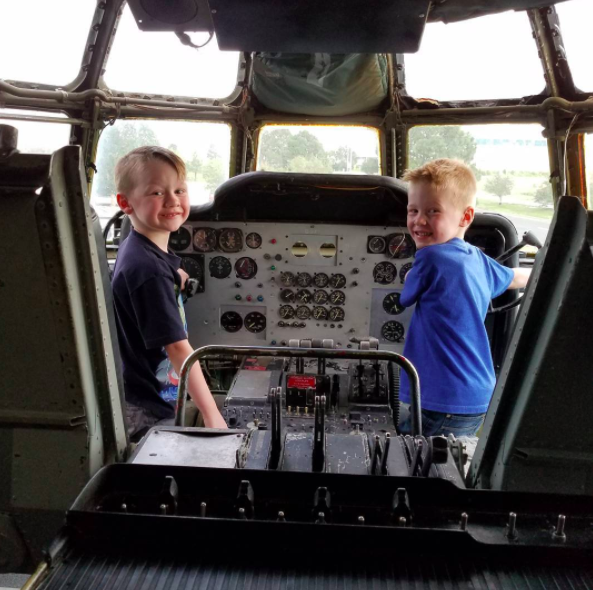
The nurses informed us that the pediatrician on-call wanted to talk to us. Again, maybe I’m the village idiot here but no red flags. I thought he wanted to debrief about what had happened when our baby was born not breathing. Two hours after he was born, the pediatrician came in. I greeted him warmly and started making small talk. After a few minutes, I said, ‘So, how’s our little guy doing?’ You know how sometimes you ask a question, already knowing the answer? This was one of those times. I was fully expecting him to say what I’ve always been told about my children and pregnancies, which is: ‘Everything’s great and your baby is perfect.’ Instead, he sat down on a chair at the end of my bed and said, ‘We are very certain that your son has Down syndrome.’
Truthfully, I thought he was kidding. I thought, ‘This guy has got to work on his bedside manner because that is a terrible joke.’ His joking made much more sense to me than it actually being true. When he kept talking, I just blurted out, ‘Wait, you’re not kidding?’ He was not kidding. I looked at Adam, who was sitting next to me, and on his face was the most serious look I’d ever seen. My next thought was: ‘Just take it back. Just put those words right back in your mouth, leave this room, and let us go on living our life. Because 30 seconds ago, our life was perfect.’
I was still very confused because the baby Adam was holding did not look to me like he had Down syndrome. I remember asking the doctor if this would be confirmed by some sort of test, and what the chances of him actually having Down syndrome were. I remember asking if the chances were fifty-fifty. The response is something I’ll never forget. He said, ‘Yes, we will do a test, but your son has Down syndrome. We will do the test to tell you what kind it is.’ (Two days later, a genetic test confirmed that our son has Trisomy 21 or T21, the most common form of Down syndrome. T21 is a condition where you have a third copy of the 21st chromosome. Though the chances of having a baby with Down syndrome increase with the mother’s age, T21 is completely random.)
The thing that blew my mind was that they were giving us this very life-altering diagnosis purely based on physical features. Features that I, to my untrained eye, did not pick up on in any way. Features such as the crease across both palms. The shape of his eyes. The large space between his big toes. The lower set, folded over ears. The lack of a bridge on his nose. The tongue sticking out (due to a smaller mouth). In my very limited experience with doctors and illnesses, it seemed every medical condition was confirmed with a test. And yet, here I was being told my son had Down syndrome because he LOOKED like he had it. My mind still had not completely accepted what this stranger was telling us until he said this: ‘And your midwife agrees with this diagnosis.’ At that moment, it all became real. My midwife had been with me for all three pregnancies and births. She was never an alarmist and certainly never one to lead me astray. I knew if there was any shred of doubt, she would have expressed it. I don’t know if she was in the room before, but I saw her then, walking toward us and extending her hand to me with tears in her eyes.
Adam was holding our new baby and I suddenly needed to have him in my arms. I hugged him tight and kissed his cheeks. I remember looking at his face. This face I had been staring at for the past hour suddenly looked completely different. And at the same time, my heart ached with compassion. I remember thinking, ‘This is not your fault. You are just a baby. You are not the baby I thought you were, but you are still MY baby.’
This story originally appeared on Love What Matters.

The doctor spoke with us for a while. He spoke very candidly but very kindly. I didn’t start to cry until he left the room. ‘I’m not sad. I’m not sad,’ I said through sobs. I wasn’t saying it because I felt guilty for crying, I think I was saying it to myself because it felt important to distinguish these tears. I have felt deep sadness in my life, and heartache that felt beyond repair. Sadness, for me, has always been accompanied by an emptiness. What I felt at that moment was not empty. Instead, it felt heavy. It felt overwhelming and suffocatingly complex. But not sad. Sad felt too simple a word. Plus, I was holding the beautiful new baby that I had prayed for. This was just something we did not expect or feel prepared for in any way.
By this point, I was ready to go to a recovery room. But moving to a second location made this real, and I didn’t want it to be real. How could I take myself and my baby out of that room and leave the diagnosis in our shadow? I remember being pushed down the hallway in my wheelchair, holding my baby, thinking I should have been the happiest person in the world. Instead, I had just received news that turned our world upside down. I looked at the people we passed in the hallway. Did they know what had just happened to us?
As the day went on, it became more and more clear that this baby wasn’t getting enough oxygen and they admitted him to the NICU, where he would stay for nine days. The shock of the diagnosis and how it would impact our future was quickly replaced with the much more urgent concerns for our son’s immediate health. One by one we tackled the hurdles before us until he was ready to go home thriving.
So much happened in the days and weeks after his birth. I saw Adam cry more in two days than in our entire eight years of marriage. I cried every single day for a least a month. I could write thousands upon thousands more words about how it went, but I will say this: I do remember that every time I went to visit and hold my son in the NICU, I felt so happy. True, genuine happiness.
Right before we left the hospital, we named him Milo Bond Benton, because we believe he will bond our hearts here on earth.
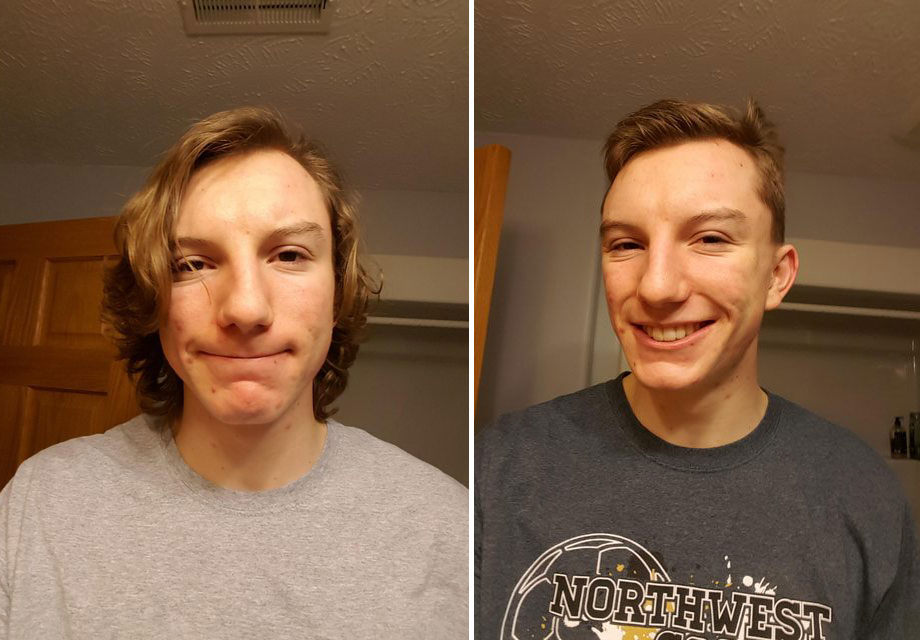
Because Milo was nameless for a week, the NICU nurses took matters into their own hands and started calling him ‘Little Buddy.’ They even made a crib sign for him with that name. Three days after he was born, I had a very vivid dream in which I was at a pool with a little boy with Down syndrome. We swam across the water and sat on the ledge. In my dream, I looked at this little boy, gave him a hug, and said, ‘I love you, Little Buddy.’ He looked up at me with the sweetest smile, and I felt the strongest emotion I have ever felt in a dream before. It is an emotion I know well because it is the deepest feeling of love that I have for my other two children. I awoke very suddenly from this dream as if I needed to wake up and write it down. At that moment, I knew that our son was always meant to be in our family and that I would love him just like I love my other children. That dream was an answer to my prayers, and I haven’t looked back since.
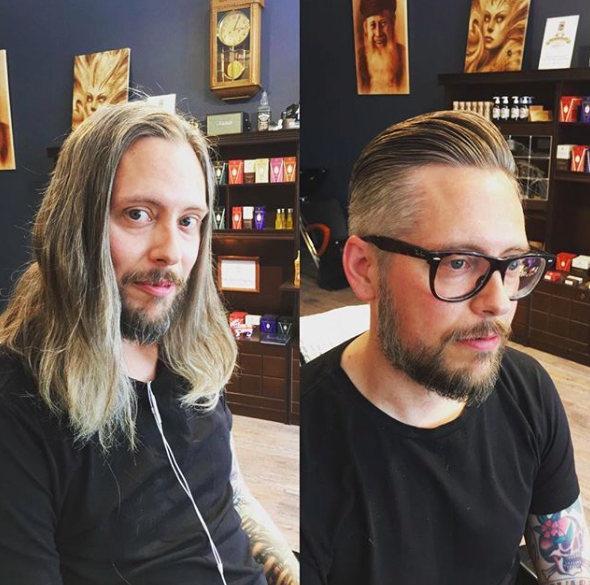
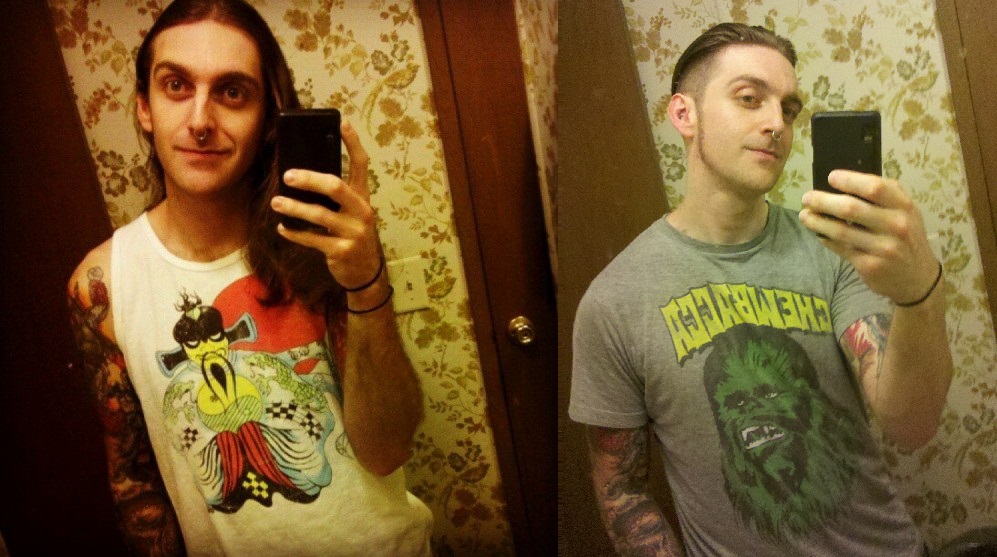
Many people have asked: ‘Do you wish you would have known?’ Although every situation is unique, this has never been a difficult question for me to answer. I always say that I’m 100 percent glad I did not know. Milo did not have any of the major health issues that can accompany Down syndrome (50 percent have a congenital heart defect that requires one or more open-heart surgeries). He was in the NICU for a few days and came home on oxygen, but that resolved itself within a few weeks and he has been perfectly healthy for more than a year. Because of all this, knowing about his condition would have only added unnecessary stress and worry. I will forever be grateful that when the doctor diagnosed him, he was sleeping peacefully in our arms.
I have always felt grateful that our situation was handled with the utmost compassion. The more I connect with other families of kids with Down syndrome, the more I realize that many people are not as fortunate. No one at the hospital said, ‘I’m sorry,’ although they were very respectful and allowed us to grieve in our own way and time. Because a pediatrician gave us the diagnosis, he was able to paint a complete picture of what a life with Down syndrome looks like, and share his own experiences of seeing children with Down syndrome grow up with vibrant and full lives. As a parent of a child with Down syndrome, I think we have a great opportunity to educate the medical community about the myths associated with this condition, and train people on how to offer positive resources and support to families who are given a diagnosis.
Now, 14 months later, Milo is physically smaller and developmentally behind his peers without Down syndrome, but at this point, he just seems younger. There is, however, one significant difference that I see in Milo: he brings an undeniable spirit of peace into our home. Even though he can’t talk yet, I sense that he is happy to be alive and happy to be in our family. I believe this spirit of peace is one of his God-given gifts, and I believe one of his purposes on this earth is to share that with the people around him. From the first moment I met him, his very presence has been whispering to me, ‘It’s okay, Mom. I’m here, and everything is okay. There’s nothing to be afraid of.’ We love you, Milo. We are so grateful you are in our family.”
This story was submitted to Love What Matters by Stephanie Benton from Salt Lake City, Utah. You can follow their journey on Instagram.
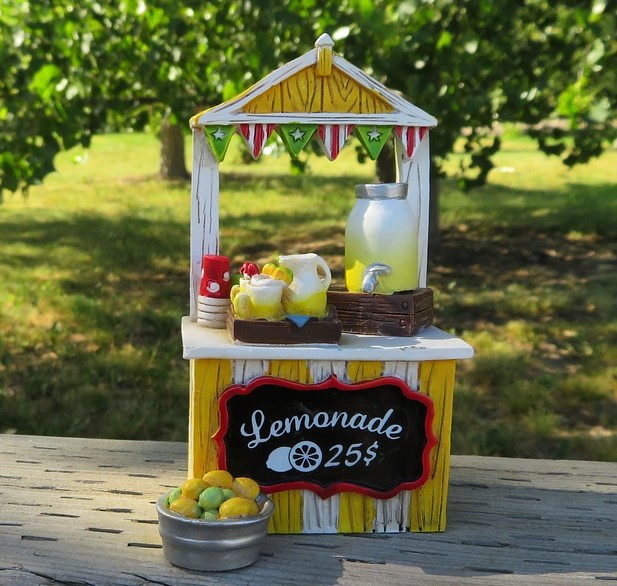
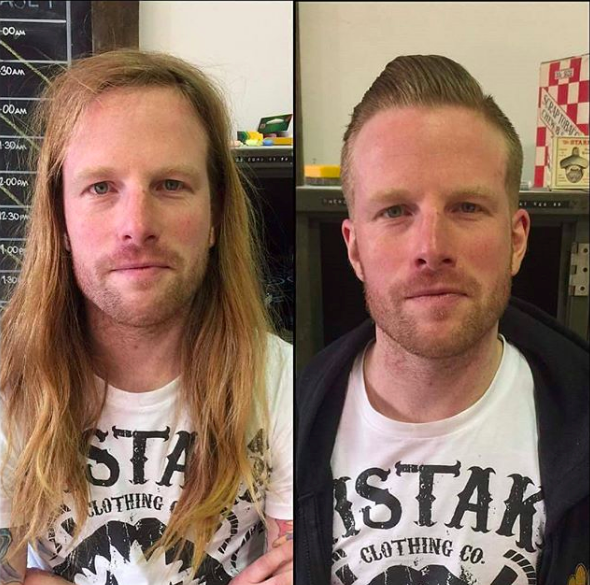
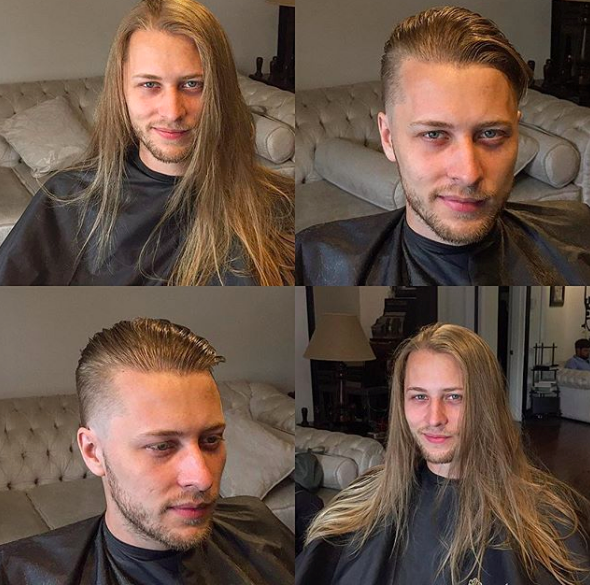
Get more stories like this in your inbox! Sign up for Smile, our free daily good news email read by over 825K people!
Want to be happier in just 5 minutes a day? Sign up for Morning Smile and join over 455,000+ people who start each day with good news.

